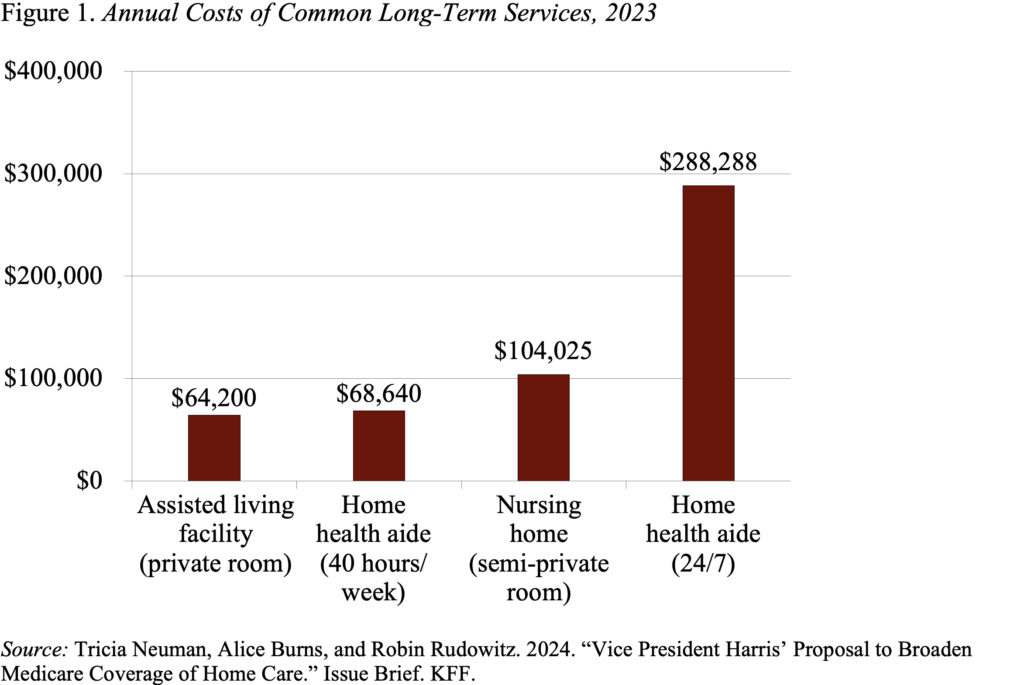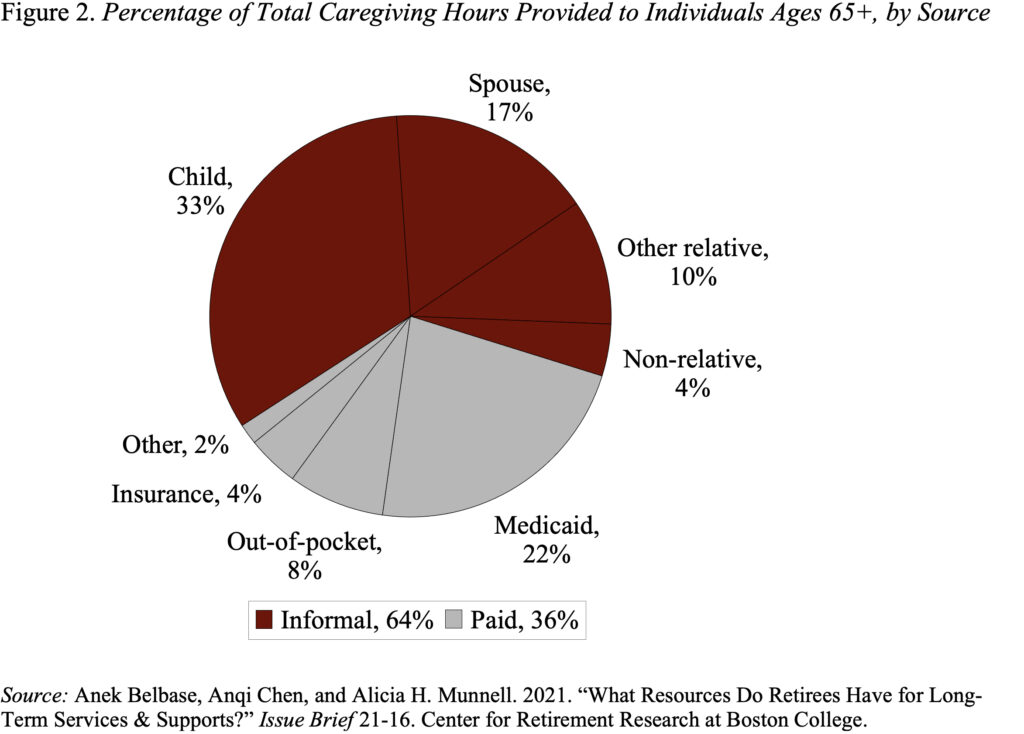An examination of long-term care is sweet for all of us.
As somebody attempting to turn out to be extra educated about long-term care, I used to be stunned and intrigued by Vice President Harris’ proposal to create a brand new residence care profit for Medicare beneficiaries. The small print of this system are nonetheless slightly unclear, but it surely feels like:
- It could be obtainable to Medicare beneficiaries who need assistance with important actions of day by day residing like bathing, consuming, and toileting or have a severe cognitive impairment similar to Alzheimer’s illness.
- It could cowl a most of 20 hours of paid care per week (primarily based on the assertion in the marketing campaign’s reality sheet that “the overwhelming majority of seniors with long-term care wants are nonetheless in a position to dwell of their houses with a median of 20 hours or much less per week of care”).
- It could pay the total value for these with modest incomes “with a sliding scale of cost-sharing for seniors with larger incomes.”
Whereas I had considerably concluded that the best precedence was some type of social insurance coverage for individuals who incur catastrophic long-term care prices, I’m delighted to have a dialog a few new Medicare home-care profit for 5 causes.
First, for late-career staff and retirees, the potential of needing care later in life is an actual concern. Many assume the worst case – that they’ll want intensive take care of an extended time period. Worry of dependency makes retirees reluctant to spend their 401(ok) balances, depriving themselves of requirements as they age. A debate a few restricted Medicare home-care profit would possibly make clear that not everybody will get dementia.
Second, to the extent that folks count on long-term care assist from public applications, they already mistakenly consider Medicare as the first supplier. Actually, Medicare doesn’t present long-term care providers. One doable supply of confusion could also be that Medicare covers as much as 100 days of care in a talented nursing facility, after a hospital keep of not less than three days. Equally, Medicare additionally covers some residence well being care providers for as much as 21 days and supplies hospice care. However many of the care coated by Medicare is medical, short-term, and related to an acute or terminal occasion. A debate about including a home-care profit would possibly assist make clear the restricted function that Medicare performs in long-term care.
Third, Medicaid – not Medicare – is the main payer for long-term care. However this system – which has stringent revenue and asset exams – is loopy difficult with protection guidelines that adjust by state, residence care providers supplied on the possibility of the state, and varied definitions of “restricted” monetary sources. Furthermore, about 700,000 persons are on ready lists for sure varieties of residence care providers as a result of extra persons are looking for these providers than the states can accommodate, because of shortages in each funding and repair suppliers. A debate a few Medicare residence care profit would possibly make clear the complexity and limitations of Medicaid.
Fourth, an important conclusion that may emerge from an evaluation of Medicaid is that the center class has just about no protections. The rich can self-insure and – regardless of this system’s complexity and limitations – these with restricted funds can get some assist from Medicaid. Center-class households, nonetheless, should depend on their very own sources and the prices they face are staggering (see Determine 1). A debate a few new Medicare residence care profit might focus the eye on the fee for households dealing with high-intensity, long-duration care.

Lastly, whereas Medicaid is the main payer for paid care, it covers solely 22 p.c of the hours required to take care of these 65+ over their lifetimes (see Determine 2). The extra frequent supply of assist is unpaid casual care supplied by members of the family – primarily spouses and youngsters. This care locations an unlimited bodily, emotional, and monetary burden on the caregivers. A debate a few Medicare residence care profit might assist spotlight the burden borne by unpaid caregivers.

The underside line is that the Vice President’s proposal casts a shiny mild on a serious drawback. If it had been to be enacted, a lot of choices must be made about who’s eligible, the connection with different Medicare advantages, the connection to Medicaid advantages, and the way the fee could be coated. I additionally hope that the talk consists of some dialogue about whether or not sources for long-term care ought to go to first-dollar protection for everybody versus making a program that covers catastrophic prices. My intestine is essentially the most households can cope with a 12 months or much less of low to medium depth care; the individuals who actually need assistance are those that face a few years of excessive depth care on account of dementia or another debilitating long-term aliment. In any occasion, a severe dialogue of the long-term care subject will likely be good for all of us.

